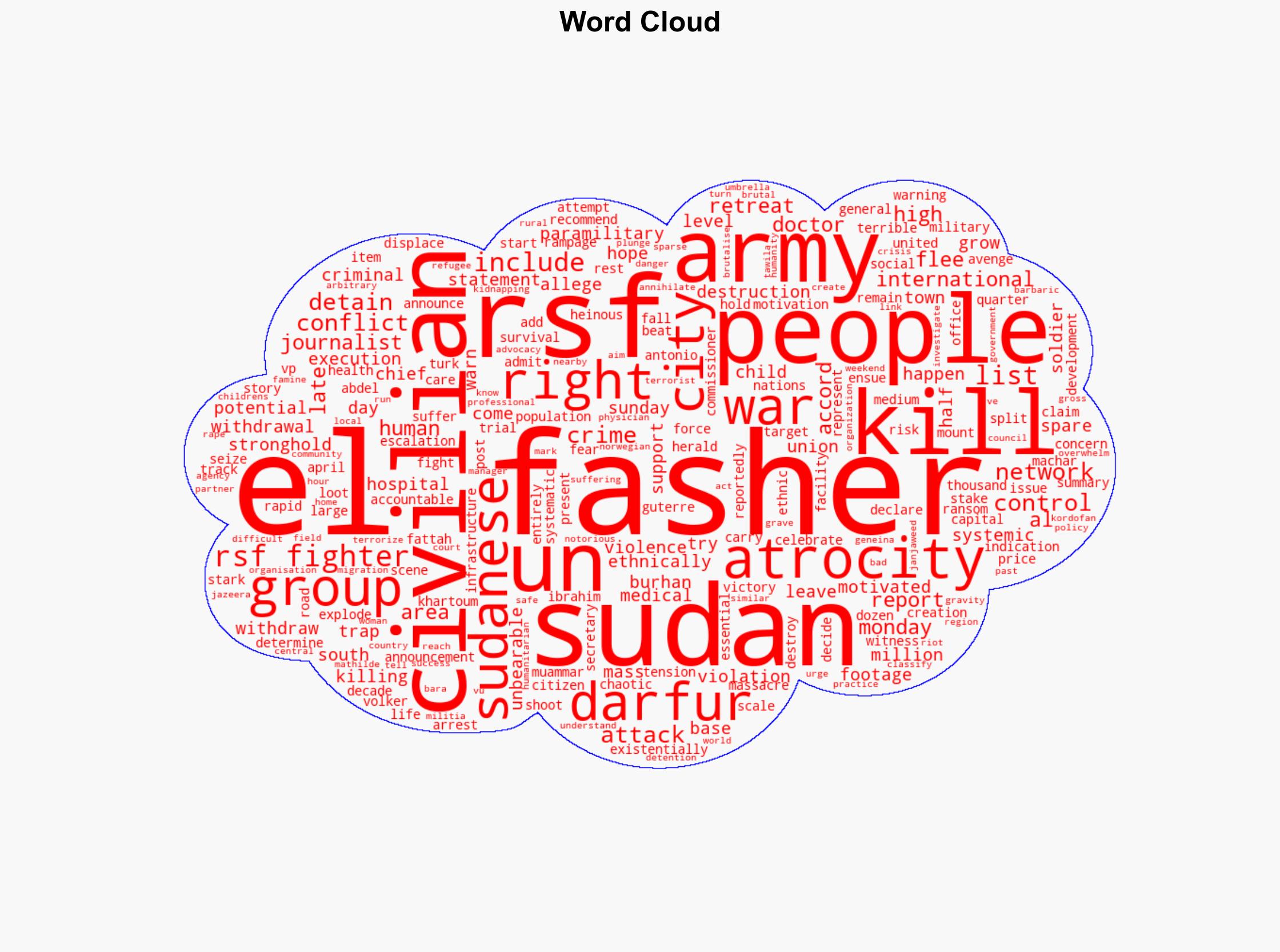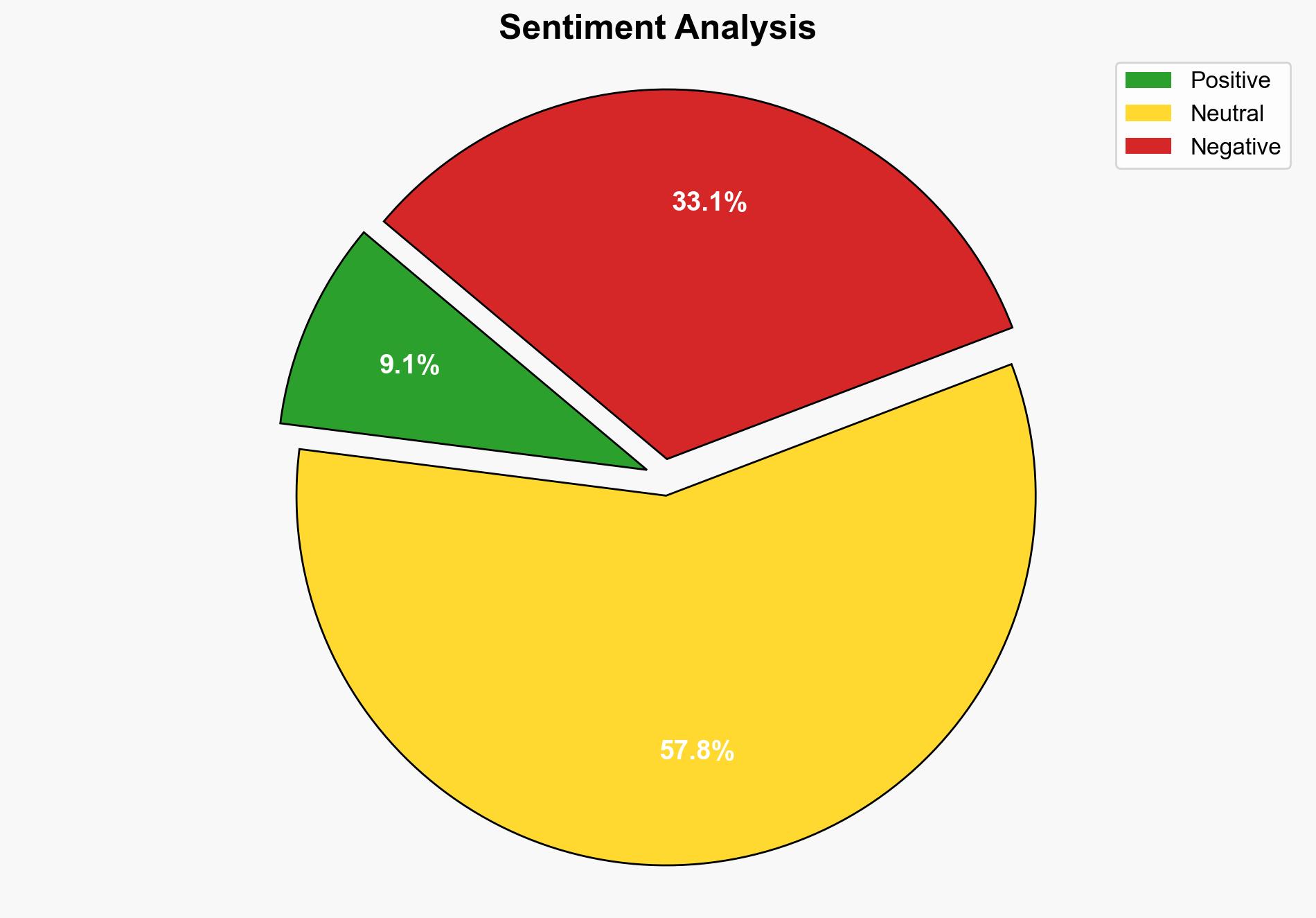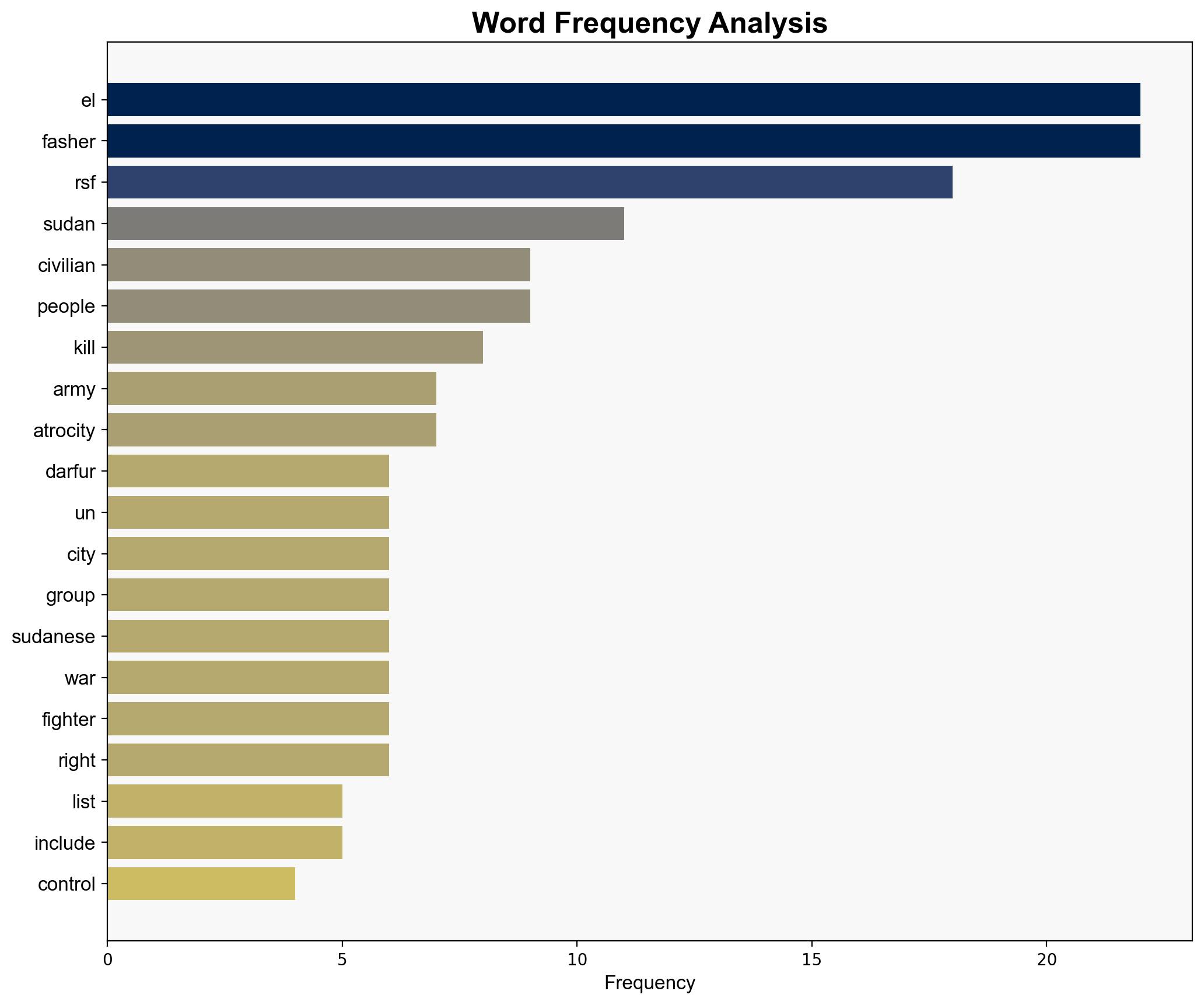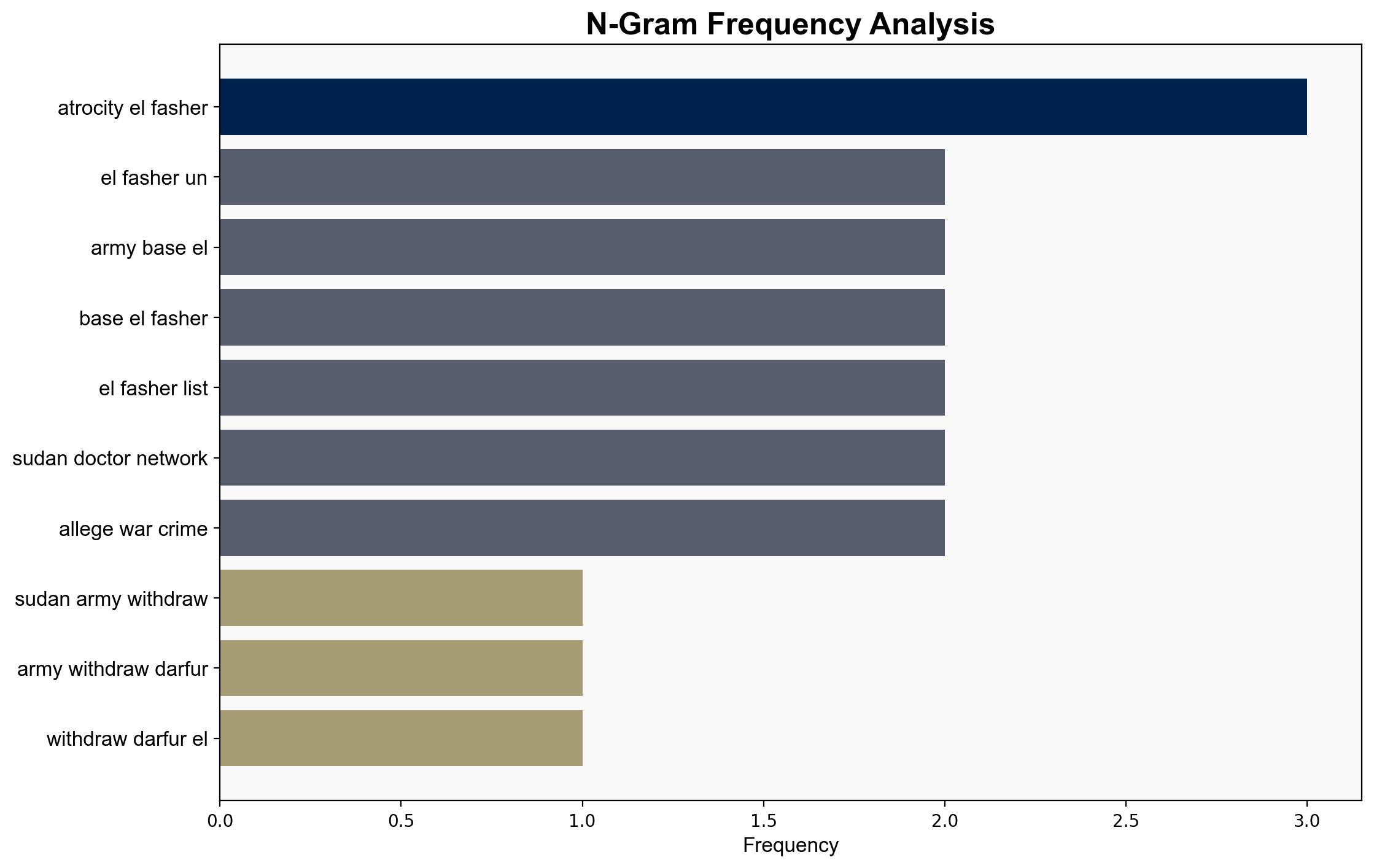Sudan army announces withdrawal from el-Fasher UN warns of RSF atrocities – Al Jazeera English
Published on: 2025-10-28
Intelligence Report: Sudan army announces withdrawal from el-Fasher UN warns of RSF atrocities – Al Jazeera English
1. BLUF (Bottom Line Up Front)
The Sudanese army’s withdrawal from El-Fasher has resulted in the Rapid Support Forces (RSF) taking control, leading to increased violence and potential ethnic atrocities. The most supported hypothesis suggests the RSF aims to consolidate power through intimidation and ethnic targeting. Confidence level: Moderate. Recommended action: International diplomatic intervention and humanitarian aid mobilization.
2. Competing Hypotheses
Hypothesis 1: The RSF’s actions in El-Fasher are primarily driven by a strategic objective to consolidate territorial control and power within Sudan, using intimidation and violence as a means to suppress opposition and dissent.
Hypothesis 2: The RSF’s actions are ethnically motivated, aiming to target specific groups to instigate fear and potentially alter demographic balances in the region.
Using the Analysis of Competing Hypotheses (ACH) 2.0, Hypothesis 1 is better supported due to the RSF’s historical pattern of using violence for power consolidation and the strategic importance of El-Fasher. However, evidence of ethnic targeting supports Hypothesis 2, indicating a complex interplay of motives.
3. Key Assumptions and Red Flags
Assumptions include the RSF’s capability to maintain control without significant external support and the Sudanese army’s inability to counteract effectively. Red flags involve potential underestimation of RSF’s ethnic targeting motives and the lack of comprehensive intelligence on ground realities due to restricted access.
4. Implications and Strategic Risks
The RSF’s control over El-Fasher could lead to further destabilization in Sudan, with potential spillover effects into neighboring regions. The risk of ethnic cleansing could prompt international intervention, affecting geopolitical dynamics. The humanitarian crisis may worsen, impacting regional stability and security.
5. Recommendations and Outlook
- Immediate diplomatic engagement with Sudanese authorities and regional partners to de-escalate tensions.
- Mobilize international humanitarian aid to address civilian needs and prevent a humanitarian catastrophe.
- Best-case scenario: Successful diplomatic intervention leads to a ceasefire and negotiations.
- Worst-case scenario: Escalation of ethnic violence results in large-scale atrocities and regional instability.
- Most likely scenario: Continued RSF control with sporadic violence and international condemnation.
6. Key Individuals and Entities
– Abdel Fattah al-Burhan
– Rapid Support Forces (RSF)
– United Nations (UN)
– Sudanese Doctors Union
– Volker Turk
7. Thematic Tags
national security threats, regional focus, humanitarian crisis, ethnic conflict





